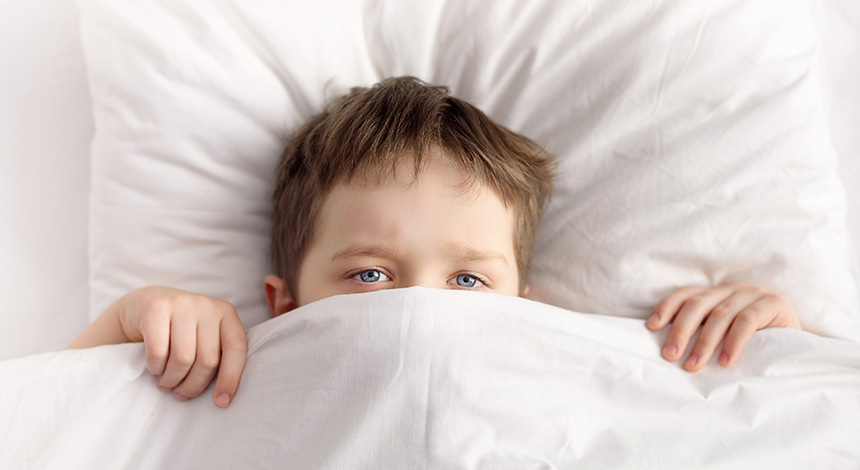Should you worry if your potty-trained child wets the bed?
Published at

Many parents have been there. A child who has been out of diapers for a while soaks the bed, and half-awake adults find themselves replacing sheets and blankets in the middle of the night.
The situation is often embarrassing for the child and frustrating to the parents.
Occasional bedwetting in potty-trained children is normal as the young brain and bladder are still learning to work together. But what do you do if this happens regularly — and perhaps several times a night?
First, you should respond with patience. Children do not wet the bed on purpose! Your child needs compassion, not belittlement or overbearing discipline. Frustration is no excuse for unkindness, even if your child should “know better.”
Second, if the bedwetting is consistent, it could be a symptom of a health problem, and you should see a pediatrician. Here are a few things that could be causing the sleepless nights:
- Sleep disorders. The American Urological Association says obstructive sleep apnea could lead to the kidneys producing extra urine at night.
- Stress. Your child may be dealing with a new sibling, struggling in school, or going through a family crisis. And, in turn, the bedwetting itself may be causing more stress.
- Genetics. If a parent regularly wet the bed as a child, the son or daughter is likely to as well.
- Urinary tract infection. If the urine is red or pink, and it hurts to pee, the child may have an infection that should be treated.
Bedwetting is also a common symptom of Type 1 diabetes, formerly known as juvenile diabetes, which has nothing to do with the child’s diet or a lack of self-control.
“It is quite common to hear from parents of children with Type 1 diabetes, that they noticed frequent urination and even bedwetting after being potty-trained when their child was diagnosed,” says Dr. Joshua Smith, eastern Idaho’s only pediatric endocrinologist.
In Type 1 diabetes, the body’s immune system attacks the pancreas, which produces insulin. Insulin breaks down sugars, and when the body doesn’t have enough insulin, it tries to get rid of the extra glucose through the urinary tract. If untreated, diabetes can be life-threatening.
If it’s diabetes, your child may also frequently use the bathroom during the day, often be thirsty, have “fruity” breath, an increased appetite, and experience extreme changes in mood. For more symptoms, click here.
Regular bedwetting can be more than a source of inconvenience and embarrassment. Sometimes it’s a symptom of something far more serious. Please see a medical professional to determine the cause and the best course of action for you to take.


